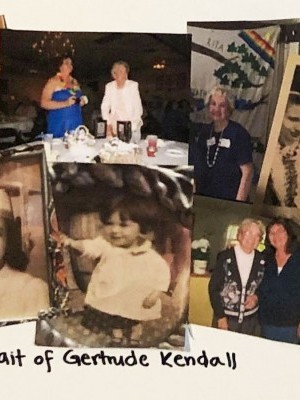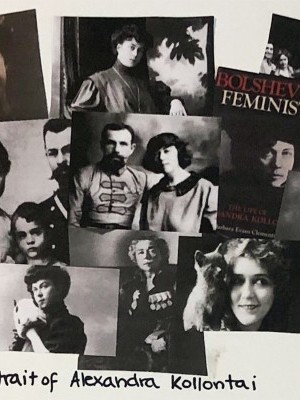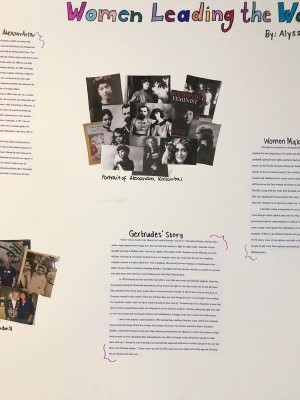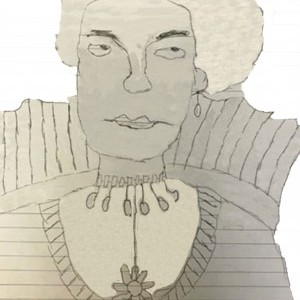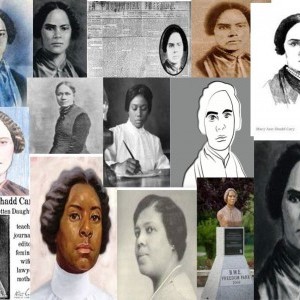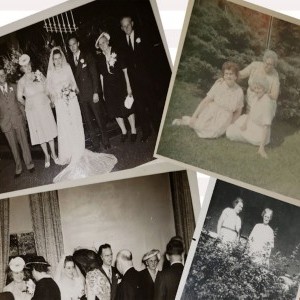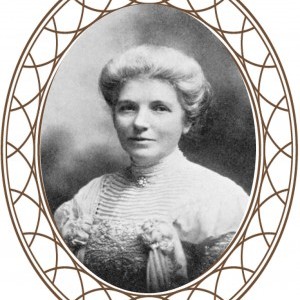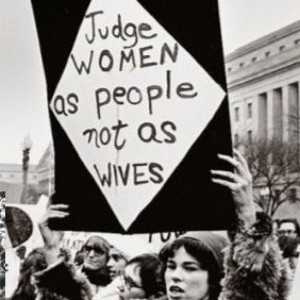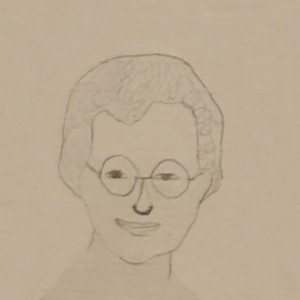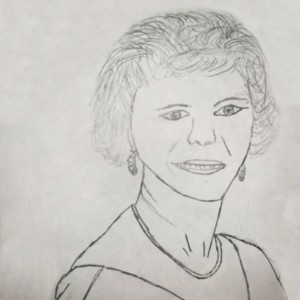Alyssa Coleman
Rutherford B. Hayes High School | Delaware City, OH | 10th Grade
Inspirational Family Member
My Great-Grandmother's Story
“Some women wonder why History isn’t called Herstory” (Lewis 1). Throughout history, females have made a large impact on how things have been run and still continue to fight for rights today. Gertrude Cecilia Kendall was born in Buffalo, New York on the eigth of November, 1929. Gertrude was the fifth girl out of six children. Growing up, her family decided to move to Scranton where she worked her first job as a telephone company operator at a place called New York Telephone. Her second job was working as a bookkeeper in her father, George Wilson’s business, Hamburg Radiator. Throughout her life, she also worked as a cashier at a grocery store near home and worked in a used clothing store called Best Dressed Kids.
In 1920 Gertrude and her sister Rita were able to vote. Rita was twenty and Gertrude eighteen. Since the law passed creating the Nineteenth Amendment, giving women the right to vote, they could vote for the first time. She remembers there being many women there, everyone excited to finally be able to have a say in what goes on. Everyone wanted to take control of this new privilege they now had. During the time “even though it was exciting for everybody it really wasn’t as big of a deal to people as time went by,” Gertrude says. For a long time women had been viewed as insignificant people, not being able to do the jobs men could do. Women gaining the right to be able to vote was an important movement in history and contributed to a change in the way women were looked upon.
Later on she married Lester Kendall in 1949 and had three children: Marilyn, Larry, and Kevin. Gertrude was a housewife during World War ll while her husband was in the war, but also worked at Kurtis Aircraft in Buffalo, which built bombers for the war. When Hawaii got bombed by the Japanese we didn’t have planes to fight back because we were defending them and helping the war effort in Europe so they hired many people to make them. She says, “During the war everything was rationed like sugar and stuff and we couldn’t get gas in the cars and there were rationing stamps.” Today women are still not fully equal and some rights still remain ignored, showing the movement is far from over
Historical Figure I Admire
Alexandra Kollontai
Alexandra Kollontai, born on March 31, 1872, was a major figure in the Russian socialist movement and organized mass movements of working class women and peasants. Alexandra was raised in both Russia and Finland and acquired an early fluency in both languages. In 1894 she was drawn into clandestine and public work with the Political Red Cross. Two years later in 1896, she saw the open face of capitalist industry for the first time when she visited a large textile factory and later that year, she was active in leafleting and fundraising in support of the mass textile strike. By 1898 she was fully committed to Marxism and went to study in Zurich under the Marxist economist Heinrich Herkner. In 1899, she began underground work and along the way, Kollontai led a campaign to organize the women workers of Russia to fight for their own interests against all others. In 1908, after three months spent evading arrest, she was forced to flee into exile, continuing to remain outside of Russia. From 1922 to 1945, she worked in exile as a diplomat and after her retirement for health reasons she worked until her death in 1952 as an advisor to the Soviet Ministry of Foreign Affairs.
Alexandra lived and worked in the 1900s. She began her political work in Russia in 1894, when she was a mother, by teaching evening classes for workers in St. Petersburg. Through doing that activity, she was drawn into both public and clandestine work with the Political Red Cross, an organization to help political prisoners. After committing to Marxism, in 1899 she began her underground work for the Russian Social Democratic Labor Party. Later, she joined the Bolshevik faction and conducted classes on Marxism for it. By 1905 she joined with Leon Trotsky in pressing for a more positive attitude toward the newly emerged Soviets and in pressing for unity of the party factions. Eventually, in 1917 she was elected a member of the executive Committee of the Petrograd Soviet. The rest of the time, she was a constant agitator for revolution in Russia as a speaker, leaflet writer working for the Bolshevik woman’s paper Rabotnitsa. Later from 1922 to 1945 she worked in exile as a diplomat until her death.
Kollontai brought out a new era for women. For Russia, changing laws for the Soviet family would push for a complete overhaul of their society. There was an introduction of women, playing larger roles in the political functions of society, and the Communist Party became the breeding ground of many political influences. During her time being in the Communist Party, Kollontai held many prominent roles in activities. She was able to administer new policies in support of the liberation of women, family, and the workers. Her ideals of equality, which included a women’s right to care for herself and her family as she saw fit, became among the first associated with feminism. During her political career Alexandra Kollontai was listed among the most well known and influential social revolutionaries, and today is still known as the first woman in history to occupy a place in the government of a nation.
What the Project Means to Me
Through my research on Alexandra Kollontai and connections to my great-grandmother, I have learned the true importance of women and the history that comes with it. Over time women have gradually gained more rights and have had more opportunities. Alexandra Kollontai was a significant person in the Bolshevik party during the Bolshevik revolution, and was considered the most influential female in the new Soviet society. She worked hard to make socialism adaptable to the needs of women and children and to create a new communist gender morality for the right to work. Today she is still known as the first woman in history to occupy a place in the government of a nation. Gertrude Kendall, along with her sister Rita Kendall, were the first females in my family that were able to vote. This was significant because before this time, women didn’t have the right to choose and stand up for what they wanted. Now that they could vote, it opened up a whole new era for everyone.
I feel that voting is important in our society because it provides an opportunity for everyone to give their opinion and vote for what they believe in. With the ability to elect and choose our government and its representatives, it affects everything in our lives from education to health care. Today, some young voters ignore the importance of voting, not knowing how important their voice can be. For example, if there is an election between two people running for state governor and the polls have reached 50/50, a voice of one person can make a difference.
Explore the Archive
More From This Class
Click on the thumbnails below to view each student's work.Deadline Extended
There's still time to join Women Leading the Way.
Become a part of our storytelling archive. Enroll your class today.
Join the Project

